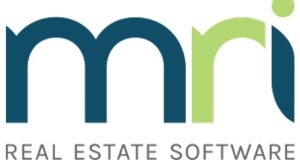Nicole Bello, Vice President of SMB and Channel Sales, EMEA, at Kronos explains why a recent ECJ’s ruling on time-tracking software could be beneficial for facilities management
In May, the European Court of Justice (ECJ) passed a ruling that will require employers in EU member states to set up time-tracking software systems, in order to ensure full compliance with labour laws. It’s designed to give employees across all industries an extra layer of protection when it comes to working hours, thereby reducing the chances of exploitation and helping to maintain worker wellbeing in the long term.
Time-tracking software has been commonplace in FM for many years, but this ruling adds a little bit of extra scrutiny to the need to keep close, accurate records of worker schedules and the amount of time they’re spending on the job. For some managers, this could be seen as an additional administrative burden added to a raft of other responsibilities, but there are ample benefits to derive from the ECJ’s decision.
As far as further improving worker welfare and performance is concerned, this ruling presents an excellent chance for businesses to re-evaluate how they’re approaching time-tracking and schedule planning, and make any further improvements as necessary.
THE RULING
On 14 May, the ECJ said in its ruling that “Member States must require employers to set up an objective, reliable and accessible system enabling the duration of time worked each day by each worker to be measured”. The ruling stemmed from a lawsuit filed by the Comisiones Obreras (CCOO), a Spanish trade union aiming to ensure employers act fully in line with European labour regulations and record overtime accurately.
The ECJ ruled in CCOO’s favour, with the decision being received positively by the German Trade Union Confederation, which said that the ruling puts an end to what it called “flat-rate work”. As far as employee wellbeing is concerned, there’s plenty to be optimistic about here.
CLEAR SKIES FOR EMPLOYEE WELFARE
For FM, the decision means taking a closer look at how time is currently being planned and tracked. It can be easy to see this as another time-consuming task, but in truth, there’s a huge amount of potential to do good things for your employees and your business in here.
Time-tracking systems might already be a fixture in the FM world, but if you’re relying on older legacy technology to do the job, there’s a possibility that you’re not getting the most out of the tools at your disposal. The ECJ ruling gives organisations an opportunity to assess how they can bring an even greater level of detail and accuracy to the time-tracking process, helping them to more easily identify if employees are being overworked or if their shifts are being scheduled in a fair manner.
PEOPLE ARE THE INNOVATORS, TECHNOLOGY IS THE FACILITATOR
Technology that increases automation of more mundane processes has a big part to play here. Far from threatening the role of human managers, these tools are designed to alleviate the burden of time-consuming administrative tasks on human staff, enabling them to spend more time on activities that drive value for the business.
Take a facilities manager who traditionally spent a large portion of their time manually planning shifts and monitoring worker activity, painstakingly checking for any pain points or anomalies and then taking steps to address them. By delegating some of these formerly manual processes to an automated time-tracking application, many of the headaches that took up so much of the manager’s time are removed.
Instead, this manager can devote more of their time with employees, bonding and providing real-time training, advice and mentorship – which can be hugely beneficial in raising worker engagement and morale. It also gives managers a bit more time to be creative in their work, as their efforts can now be directed towards the development and implementation of new initiatives that can further drive employee fulfilment.
The important point to note here is that technology isn’t there to usurp people, it’s there to complement them, by making their lives easier and encouraging them to bring a new level of innovative thought to the business.
WHERE TECH MAKES A DIFFERENCE
Workforce management technology is evolving at a rapid pace, and will play a leading role in the FM world and beyond following the ECJ ruling. Specifically, human capital management (HCM) software will be at the forefront, not just because of its ability to track time effectively, but also how it can be used to incorporate every other aspect of HR management under one roof. This includes recruitment, onboarding, performance management, compensation and benefits, attendance, payroll and even exit management.
The latest HCM software now incorporates technological elements such as AI and machine learning, using these to enhance the automation and planning processes, and help facilities managers to focus more heavily on driving further value to the business.
A NEW DAWN FOR EMPLOYEE ENGAGEMENT
For any organisation, people are your most important asset. Making sure they are engaged, motivated and inspired to do well is paramount, and the ECJ’s recent ruling has been made with this very much in mind. It shouldn’t be something that strikes fear into the hearts of business leaders and FMs; it should be welcomed as an opportunity to get even sharper when it comes to workforce management.
By welcoming the ruling with open arms and taking steps to make the very most of the technology at your fingertips, the world of FM will be much better off in the long run.




